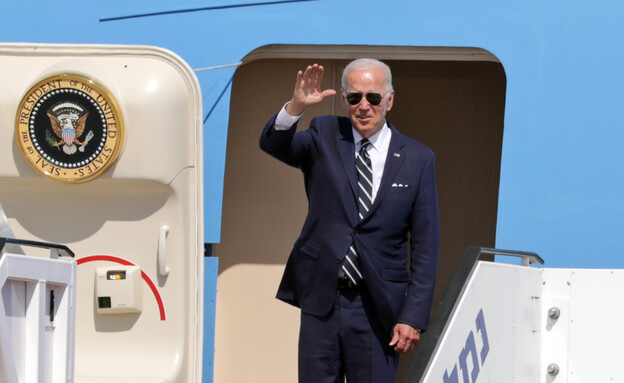Assassination of Ayman al-Zawahri — Radical Islamic Organizations Are Here To Stay
(Israel) on 2 August 2022
by Shahar Kleiman (link to original)
With the assassination of Ayman al-Zawahri by an overnight CIA drone strike in Afghanistan, an exchange of blame broke out between the Taliban and the United States regarding the Doha Agreement. The agreement was supposed to bring an end to the war between the United States and Afghanistan after two decades, but in fact it paved the way for the withdrawal of American forces and the takeover by the Taliban. Now, the new Islamist authority is blaming the United States for violating the agreement, while in the White House they believe, correctly, the fact that the arch-terrorist was living at home in Kabul, the capital of the country, was a blatant deviation from the agreement.
The assassination of al-Zawahri has dealt a harsh blow to radical Islam, which, within two months, has lost the new Islamic State group leader in a U.S operation in northern Syria. However, as long as the ideology of radical Islam is alive among many in the Middle East, new leaders will step into the shoes of the slain. This is not to mention that Afghanistan is under the horrific rule of the Taliban, which cultivated al-Qaida for years.
Al-Zawahri was not only an administrative or operational figure in the terrorist organization, but the one who laid down the ideological and strategic infrastructure. As many others did, he joined the Muslim Brotherhood as a young man but split from them because he did not accept their ideology of integrating into Egyptian government and politics.
He adopted the doctrine of Sayyid Qutb, who saw every government as a modern version of the Jahiliyyah era prior to the rise of Islam; i.e., any leadership that is not based on Islam is in essence heretical and must be removed. It does not matter whether it places the state in the center or the people in the center. Based on this, al-Zawahri wanted to make sure that in the coming days there would be an endless number of people ready to replace him.
Another area of concern was related to the instability sweeping over the Middle East. These days, Saudi Arabia is changing its direction and turning its back on those of the Wahabism belief, another Islamist sect that strives to purify Islam from foreign influences, which has enjoyed a long alliance with the ruling authorities.
From the beginning, fundamentalist Islam grew against the backdrop of the response to Westernization that affected Egyptian society in the 1920s. Hassan al-Banna, the founder of the Muslim Brotherhood, described this process as a wave that would inundate the Islamic world and erase its identity. His conclusion was the need “to return to the roots.”
Fear of the Islamic State
Now, when Saudi Arabia is reopening movie theaters and reforms for women are taking place, there will be elements within the country that will try to turn back the clock. Even in the past, Saudi Arabia suffered from terrorist attacks by radical Islamic organizations; it is not for nothing that in Riyadh they praised the assassination of the al-Qaida leader.
In addition, various elements are likely to exploit the chaos in Iraq following the political silencing in the country. The Iraqi territory was a haven for brutal terrorist organizations such as the Islamic State group. Now, the parliament is subject to repeated invasions by the Shiites who are opposed to Iran, which has prevented the establishment of a stable government for many months. The concern is that organizations like the Islamic State group will exploit the instability in order to regroup and to once again take over areas in Iraq.
Another element linked to the crisis being experienced by the movement, which was in fact the “habitat” of terrorist organizations: the Muslim Brotherhood. Since the army has returned to the forefront of Egypt and the rise of Abdel Fattah el-Sisi, the security services in the country have declared all-out war on the Muslim Brotherhood, including mass arrests of members of the organization. Many of its leaders have been sentenced to prison and Mohamed Morsi, the president who was elected on its behalf, has died.
Now, there is a conflict between two centers of power of the leadership in exile: Ibrahim Munir, who resides in London and wants to change the movement into an ideological stream in light of repression by the ruling authorities, and leaders in Istanbul who are still insistent on political involvement. In fact, this crisis can lead to desperate actions aimed at leveraging the status of one of the factions.
Despite everything, the blow the United States delivered against al-Qaida should not be underestimated. The fact that the CIA successfully located al-Zawahri’s residence casts light on the quality of intelligence enjoyed by the superpower in Afghanistan — this, even after the withdrawal of forces from on the ground.
In addition, the decision to assassinate the prince of terrorism indicates that U.S. leadership has sobered up and understands that there are terrorist elements with whom negotiations and contacts are useless. The decision also indicates that the United States, perhaps, has learned a lesson from its withdrawal from Afghanistan and will be more cautious in withdrawing from the Middle East. After all, the entrenchment by the al-Qaida leader in Kabul was an expected development following the withdrawal of American forces.


